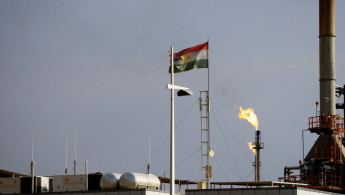Dana Gas terminates contract with Enerflex over Khor Mor project delays
Dana Gas has terminated its contract with Enerflex Ltd in regard to the expansion of the Khor Mor gas field in Iraq's Kurdistan Region, citing persistent performance issues that it claims have led to significant delays in the US$806 million KM250 project. The project is crucial for increasing gas production by 250 million standard cubic feet per day (MMSCF/day) to support energy needs across the region.
In a statement released on Tuesday, Dana Gas stated, "The ongoing impact of these performance issues has materially affected Enerflex's ability to meet its contractual obligations, leading to unacceptable delays and hindering the progress and timely completion of the Khor Mor gas expansion project."
Enerflex, a global energy infrastructure provider, has strongly contested the termination, attributing the delays not to performance issues but to severe security concerns following a drone attack in April 2024. The company claims that this attack, which killed four foreign workers near the Khor Mor site, forced them to suspend operations and withdraw their staff, a move first reported by The New Arab in May.
Local electricity authorities reported that the disruption caused by the drone attack led to a loss of 2,500 megawatts of electricity, underscoring the vulnerability of the region's energy supply to security threats.
Iraqi security forces have launched an investigation into the attack, pledging to hold those responsible accountable.
Meanwhile, the Kurdistan Regional Government (KRG) is also conducting its own inquiry, with a Kurdish official, speaking on condition of anonymity, accused armed factions associated with Iraq's Popular Mobilisation Forces (PMF) of being implicated in the attack.
Enerflex maintains that the suspension was a necessary response to the dangerous security situation. "The project site remains unsafe," the company argued, citing assessments from security experts that back their decision to declare "force majeure". Enerflex insists that the delays were beyond their control and were directly linked to the volatile security environment in the region.
A close industry source, speaking to TNA on condition of anonymity, revealed on Thursday that while 75% of the KM250 project has been completed, Enerflex has yet to resume operations. The source suggested that pressures from Iran-backed Iraqi militias, which have allegedly threatened further attacks, might be influencing the company's decision to delay resuming work.
The financial implications of this dispute are significant. Enerflex reported that as of 30 June 2024, the Khor Mor project was 85% complete, with a net unbilled revenue asset of approximately US$160 million. The project constitutes about 6% of Enerflex's Engineered Systems backlog. The company has also issued a US$31 million letter of credit in support of its contractual obligations, which it now views as potentially at risk due to the contract dispute.
Dana Gas and its partner Crescent Petroleum, through their joint venture Pearl Petroleum, have been central to the development of the Khor Mor and Chemchemal gas fields, which supply over 80% of the Iraqi Kurdistan Region's power generation needs. The KM250 expansion was initially expected to deliver its first gas by April 2024, but the ongoing dispute has cast doubt on this timeline.
Both companies are now preparing for potential legal action. Dana Gas is asserting its right to terminate the contract to ensure the project's timely completion, while Enerflex is defending its position and contractual rights, arguing that the termination is unjustified given the extraordinary security challenges they have faced.
The outcome of this dispute could have broader implications for energy projects in the Iraqi Kurdistan Region, where security issues frequently complicate operations.





 Follow the Middle East's top stories in English at The New Arab on Google News
Follow the Middle East's top stories in English at The New Arab on Google News


